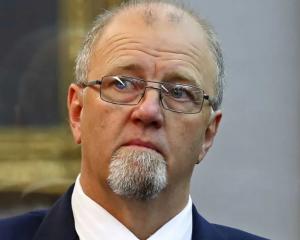
Ms Gillard, who said yesterday she would go to the polls "within months", leans further to the left of the political spectrum than former prime minister Kevin Rudd, but that should not get in the way of a good working relationship with right-of-centre Mr Key, politics department lecturer Dr Andreas Reitzig said yesterday.
It was interesting to note that Labor Prime Minister Paul Keating did not see eye-to-eye with National's Jim Bolger while Liberal leader John Howard and Labour's Helen Clark worked well together, Dr Reitzig said.
Ms Gillard's ascent to the leadership would likely have little effect on daily diplomacy between the countries as ministers and officials continue the frequent visits that might eventually take the countries closer to a single economic market.
It was unlikely Ms Gillard would order any refocusing of that relationship, but the work would probably continue as she concentrated on domestic politics before asking for a mandate in the general election, which has to be called by April next year, Dr Reitzig said.
Australian politics is a tough and ruthless game, and especially the politics practised by the Labor Party and its factions, Greg Ansley, of The New Zealand Herald, writes.
Mr Rudd fell because he had no factional backing, had become leader because he was a cleanskin who appeared to have the best chance of beating Mr Howard - as he did - and when his popularity collapsed, so did his value to the party.
Because of his record popularity, he survived even when he excluded the factions from their traditional role in the selection of Labor ministries, undermined their influence elsewhere, and confined real power to a small kitchen cabinet that included his successor, Ms Gillard.
But when his personal standing in the opinion polls began what appeared to be a terminal decline, and the Government hit rock bottom, the knives were drawn.
A previously loyal Ms Gillard, who until then had suppressed her concern at the direction in which Labor was heading, was persuaded to act by Mr Rudd's decision to check on his MPs' loyalty in the event of a challenge.
It would not be correct to say there was nothing personal - Mr Rudd had made abundant enemies - but Labor is a highly disciplined, professional organisation that puts business way before pleasure.
Its decision to replace Mr Rudd would have been shaped by pragmatic concerns for survival, and the assessment that Labor's chances of winning a second term would be much better with Ms Gillard as leader.
There would have been some consideration of a possible public backlash, but this would have been outweighed by the risk of a continuing, lethal, decay under Mr Rudd, and the knowledge that Australian voters are well used to the periodic brutality of politics.
Ms Gillard offered a number of advantages: talent, strength, growing appeal, and the added bonus of giving the nation its first female prime minister.
Her popularity had been rising in the opinion polls as Mr Rudd's was falling.
And a female prime minister will have an added advantage over Opposition leader Tony Abbott, a man whose gaffes on gender issues have added to his unpopularity with women voters.
Treasurer Wayne Swan will become deputy Labor leader. One of his first duties will be to represent Australia at the G20 leaders' meeting in Toronto.
In another shock development yesterday, Finance Minister Lindsay Tanner signalled he would stand aside at the next election to spend more time with his family.
Mr Key was the first leader to congratulate Ms Gillard. In a statement, he said New Zealand's relationship with Australia was its most important with any country and that he looked forward to working with Ms Gillard to advance it.
He was confident that "very close relationship" would remain strong and that work on progressing the single economic market between both countries, and on other joint initiatives, such as more seamless border controls, would continue.












